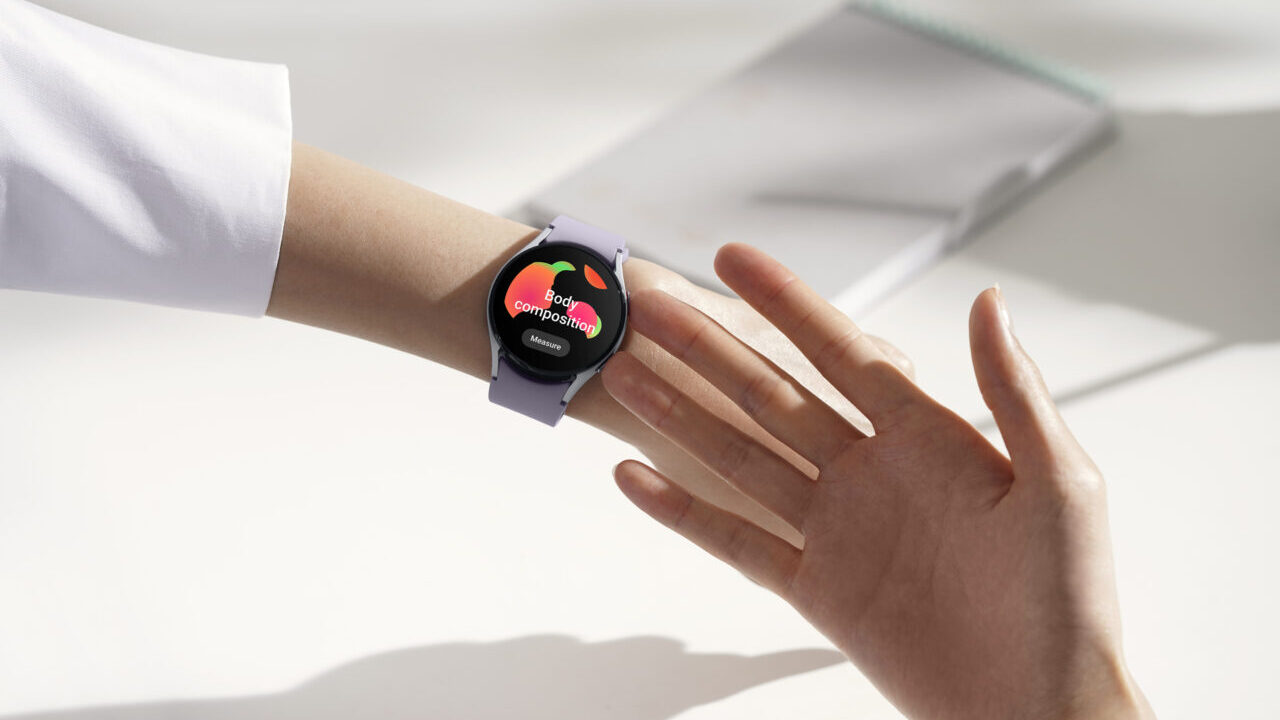We already knew that the features of the latest Samsung Galaxy Watch models were cutting-edge, but a recent study goes beyond all expectations. According to a report published by theAmerican Jounal of Clinical Nutrition (AJCN), Galaxy Watch body sensors have accuracy comparable to that of laboratory results obtained from the Pennington Biomedical Research Center of the University of Louisiana and the University of Hawaii Cancer Center.
According to the study, wearable sensors are able to effectively contribute to the prevention of obesity.
AJCN’s study of Samsung Galaxy Watch devices
According to the report the bioelectrical impedance analysis (BIA) measurement performed with the Samsung Galaxy Watch features a correlation of 97-98% with the two reference devices – a clinical measurement by DXA scanner (dual energy X-ray absorptiometry) and an octopolar laboratory analysis of bioelectrical impedance performed in duplicate – for lean mass, fat mass, skeletal muscle mass, basal metabolic rate and total body water.
The value of the BIA lies in offering a more complete picture of a person’s state of health and well-being. Thanks to the analysis of fundamental body parameters, such as basal metabolic rate and the percentage of skeletal muscle, body water and body fat, the BIA offers much more useful information about the body and the state of physical health than just measuring the body mass index (BMI).
The fact of being able to autonomously monitor behaviors, in particular thanks to the data obtained from wearable devices, allows the user to better understand their habits, leading, in almost 60% of subjects, to an increase in physical activity.
Finally the study reveals that the Samsung Galaxy Watch reduce sedentary time by an average of 68 minutes. This manifests itself with a increase of more than 2,500 steps per day.















Leave a Reply
View Comments